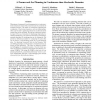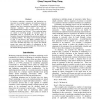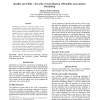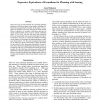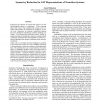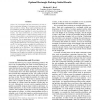121
click to vote
AIPS
2003
15 years 3 months ago
2003
We propose a framework for policy generation in continuoustime stochastic domains with concurrent actions and events of uncertain duration. We make no assumptions regarding the co...
AIPS
2003
15 years 3 months ago
2003
In business marketing, corporations and institutions are interested in executing a sequence of marketing actions to affect a group of customers. For example, a financial instituti...
112
click to vote
AIPS
2003
15 years 3 months ago
2003
This paper presents a novel idea, which combines Planning, Machine Learning and Knowledge-Based techniques. It is concerned with the development of an adaptive planning system tha...
117
click to vote
AIPS
2003
15 years 3 months ago
2003
Scheduling algorithms for real-time systems can be characterized in various ways, one of the most important ones of which is the underlying task model. Many concepts of real-time ...
117
click to vote
AIPS
2003
15 years 3 months ago
2003
There have been several proposals for expressing planning problems with different forms of uncertainty, including nondeterminism and partial observability. In this paper we invest...
126
click to vote
AIPS
2003
15 years 3 months ago
2003
Symmetries are inherent in systems that consist of several interchangeable objects or components. When reasoning about such systems, big computational savings can be obtained if t...
AIPS
2003
15 years 3 months ago
2003
Given a set of rectangles with fixed orientations, we want to find an enclosing rectangle of minimum area that contains them all with no overlap. Many simple scheduling tasks ca...
117
click to vote
AIPS
2003
15 years 3 months ago
2003
We present an efficient algorithm for exact calculation and minimization of expected waiting times of all passengers using a bank of elevators. The dynamics of the system are rep...
AIPS
2003
15 years 3 months ago
2003
Sketching provides a natural and compact means for a user to outline a plan for a high-level objective. Previous work on plan sketching required that sketches be valid, meaning th...
AIPS
2003
15 years 3 months ago
2003
In this paper we describe a compromise between generative planning and special-purpose software. Hierarchical functional models are used by an intelligent system to represent its ...
